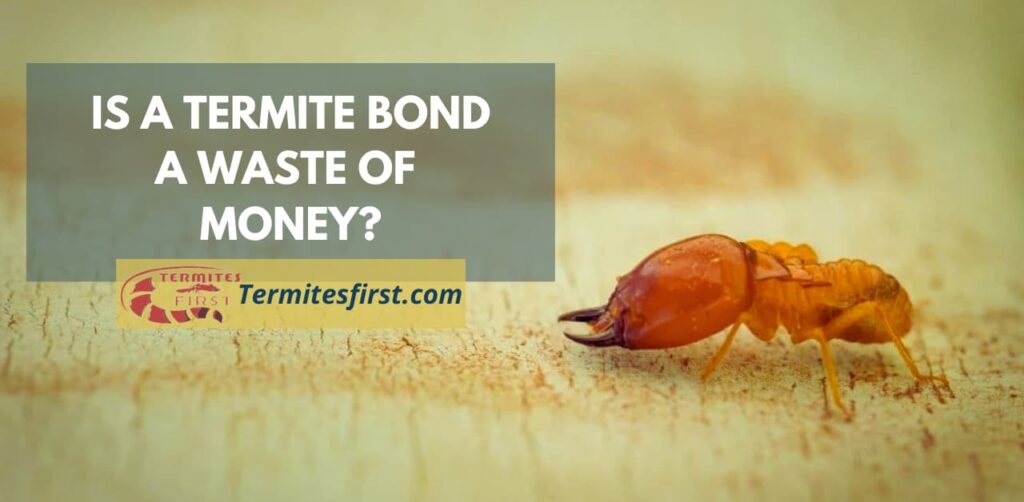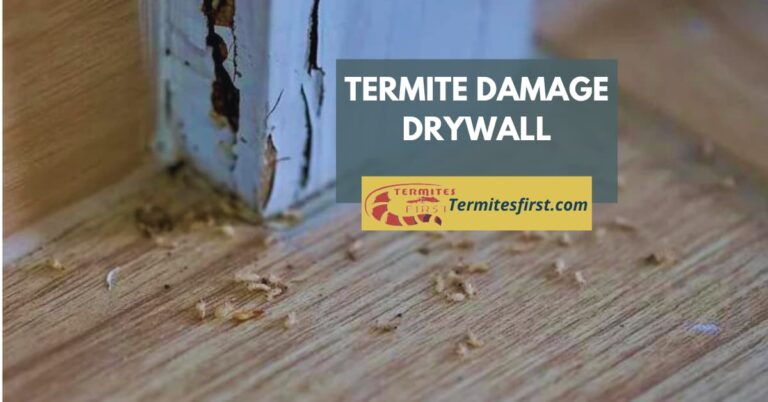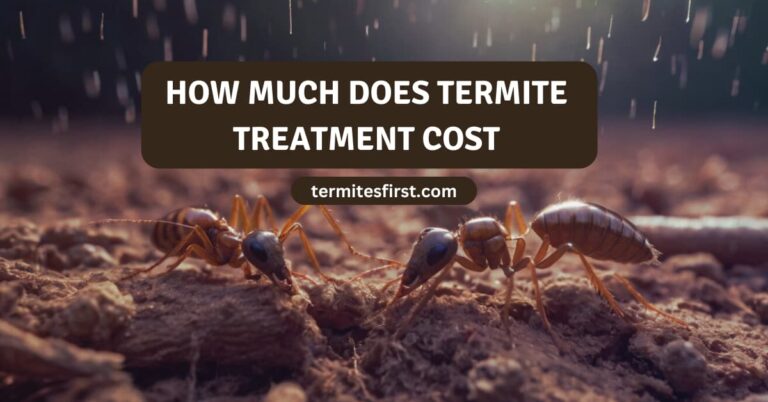Is a Termite Bond a Waste of Money? Uncover the Truth!
I often find myself wondering, is a termite bond a waste of money for event termites, subterranean termites, and drywood termites without insect inspections? On one hand, it offers peace of mind against costly damage, including liability coverage and present termite infestations through different termite bond policies and a termite inspection. On the other, some argue it’s just an unnecessary expense for service, liability coverage, and termite inspection. I’ve seen homeowners torn between investing in this liability coverage and termite bait station service or taking their chances.
Many swear by the security a bond provides, while others feel it’s not worth the cash. The truth lies somewhere in between. Understanding what a termite bond service really offers, including liability coverage, can help me make an informed choice. In this post, I’ll explore the ins and outs of termite bonds as a service, weighing their benefits against the costs. Let’s dive in and figure out if this investment is truly valuable or just another financial burden.
Key Takeaways
- A termite bond is a contract that provides protection against termite damage, giving homeowners peace of mind about potential infestations.
- Understanding the purpose and benefits of termite bonds can help you decide if they are worth the investment for your property.
- In Florida, where termites are common, having a termite bond can be especially beneficial, as it covers specific treatments and repairs.
- Be aware of common misconceptions about termite insurance, such as assuming it covers all damage, which can lead to unexpected costs.
- Evaluate the limitations of termite coverage carefully to ensure you know what is included and what is not before purchasing a bond.
- Assess the financial value of termite bonds by weighing the costs against potential damage repair expenses to make an informed decision.
What Is a Termite Bond?

A termite bond is a legal agreement between homeowners and pest control companies. This contract provides coverage for termite damage. It ensures that if termites invade your home, you have financial protection against repairs.
Homeowners can choose to purchase a new termite bond or assume an existing one when buying a house. This can be beneficial in ensuring continued protection from potential infestations. I remember when I bought my first home; the previous owners had a termite bond. It gave me peace of mind knowing that I was covered against any damages, including termite bait station service.
Different types of termite bonds exist, including those with varying warranties and policies. Some bonds cover only treatment costs, while others include repair costs for damage caused by termites. Understanding what each policy offers is crucial for homeowners.
Bait Stations
Termite bait stations play a vital role in preventing infestations. These systems attract termites and eliminate them before they cause damage. Pest control companies often install these bait systems as part of a new termite bond agreement.
Effective bait stations can significantly reduce the risk of termite problems. They monitor activity and ensure that infestations are caught early. When I had bait stations installed around my property, I felt more secure knowing that I was actively protecting my home.
Coverage Details
The purpose of a termite bond is to cover potential damages caused by termites. Homeowners need to read the fine print of their contracts carefully, including any details about termite bait station service. Some contracts may have exclusions or limitations on coverage.
For instance, certain policies may not cover pre-existing damage, require regular inspections to remain valid, or include termite bait station service. It’s important to stay informed about the terms of your ideal termite bond contract. I learned this lesson the hard way when I realized my bond didn’t cover certain areas of my home, including the termite bait station service.
Warranty Insights
Termite bond warranties vary widely among companies. Some offer lifetime coverage, while others provide limited-time agreements. Understanding these differences helps homeowners make informed decisions.
Many pest control companies will also offer renewal options for existing bonds. Regular maintenance and inspections can help maintain your warranty status. My experience showed me that staying proactive with inspections saved me money in the long run.
Purpose and Benefits of Termite Bonds
Peace of Mind
Homeowners gain significant peace of mind with a termite bond. Knowing that their home is protected from termites can reduce anxiety. I remember when I first bought my house. The thought of pests damaging my investment worried me. A termite bond offered reassurance that I was taking steps to protect my property.
Termite bonds assure homeowners that they will receive regular inspections. These inspections help catch any signs of infestation early. By addressing potential problems quickly, homeowners can avoid extensive damage.
Cost Savings
Termite bonds can save homeowners from unexpected repair costs. Repairing termite damage can be expensive, often running into thousands of dollars. For example, the average cost to treat a termite infestation ranges from $300 to $2,500, depending on the severity. A termite bond typically covers these treatment costs, making it a smart financial decision.
I once spoke with a friend who faced a costly repair after ignoring pest control measures. His experience opened my eyes to the benefits of having a bond in place. With a termite bond, homeowners know they won’t face hefty bills due to surprise infestations.
Professional Management
Having a professional pest control company manage inspections and treatments adds convenience for homeowners. Pest control experts have the training and tools needed to identify signs of termites effectively. They also understand how to apply treatments safely and efficiently.
Regular inspections mean that issues are caught before they escalate. Many companies offer annual inspections as part of the bond agreement. This proactive approach helps maintain the integrity of the home.
Homeowners also benefit from having experts handle the situation if an infestation occurs. Dealing with termites can be stressful, but professionals make it easier. Their expertise means they can address problems quickly and effectively.
Long-Term Protection
A termite bond provides long-term protection for your home. Most bonds last for several years, offering ongoing coverage against infestations. Homeowners can renew their bonds easily, ensuring continued peace of mind.
Investing in a termite bond is not just about immediate protection; it’s about safeguarding your home’s future. Many homeowners find that this investment pays off over time by preventing costly repairs and maintaining property value.
Coverage Details and Specifics
Liability Coverage
A termite bond typically includes liability coverage for treatment and damage repairs. This means that if termites are found, the company will treat the infestation at no extra cost. They often cover the cost of repairs for any damage caused by termites, up to a certain limit.
Homeowners should understand what this coverage entails. I once had a situation where my home was treated under a bond. The peace of mind it provided was invaluable. Knowing the treatment was covered helped me feel secure about my investment.
Common Exclusions
Common exclusions in termite bond agreements can surprise many homeowners. Not all types of damage may be covered. For example, some bonds do not cover damage from wood-destroying insects other than termites. Homeowners should also be aware that pre-existing damage might not be included.
Many bonds exclude damages caused by neglect or lack of maintenance. If a homeowner fails to maintain the property properly, they could face costs out of pocket. It’s essential to read the fine print carefully.
Importance of Review
Reviewing the specific terms of a bond is crucial before purchasing it. Each bond can have different coverage limits and exclusions. I learned this lesson when I bought my first home. I assumed all damage would be covered, but I found out later that some key aspects were excluded.
Understanding these details helps prevent unexpected expenses later on. Homeowners need to ask questions about what is and isn’t included in their agreement. This way, they can make an informed decision based on their needs.
Termite Bonds in Florida
Termite Prevalence
Florida faces significant termite issues. The warm climate creates ideal conditions for termites to thrive. Among these, Formosan termites are particularly notorious. They can cause severe damage to homes and structures. I have seen firsthand how quickly they can eat through wood. This makes it crucial for homeowners in Florida to be proactive about pest control.
Differences in Bonds
Termite bonds in Florida differ from those in other states. Local pest challenges shape these differences. For example, many Florida homes use termite bait stations as a preventive measure. These stations attract and kill termites before they reach the home. Other states may rely more on traditional treatments like liquid barriers. Understanding these regional practices is vital for effective pest management.
State Regulations
State-specific regulations play a key role in termite bonds. Florida law requires that termite bonds clearly outline coverage details. This includes what types of damage are covered and the treatment options available. I always recommend reading the fine print before signing any contract. Each state has different requirements, so it’s essential to know what applies to you.
Coverage Limitations
Not all termite bonds provide the same level of protection. Some may cover only specific types of termites or damage caused by them. Others might not include retreatment costs if an infestation occurs again within a certain period. Homeowners should ask detailed questions about their bond’s coverage.
Importance of Regular Inspections
Regular inspections are vital for maintaining termite bonds. Many companies offer periodic checks to ensure that bait stations remain effective. This service helps catch any potential infestations early on. I find that staying informed about the condition of my property gives me peace of mind.
Personal Experience
In my experience, investing in a termite bond has its advantages and disadvantages. On one hand, it provides a safety net against costly repairs. On the other hand, some homeowners may feel it is unnecessary if they maintain regular inspections and treatments.
Common Misconceptions About Termite Insurance
Coverage Limits
Many people think that termite insurance covers all types of termite damage. This belief is misleading. Not all termite bonds provide comprehensive coverage. Some only cover specific types of damage or certain species of termites.
I once thought my bond would protect me from any termite issue. It turned out that my policy had limitations I wasn’t aware of. Understanding these limits can save homeowners from unexpected costs.
Homeowners Insurance Policies
Many homeowners mistakenly believe that their homeowners insurance covers termite damage. In reality, most standard policies do not include protection against termite infestations. As a result, if homeowners depend only on their insurance, they could end up facing significant repair expenses.
It’s important to check your homeowners insurance policy for exclusions regarding pests. I learned this the hard way when I faced a costly repair bill after a termite infestation.
Future Infestations
Another common misconception is that having a termite bond guarantees no future infestations will occur. This is simply not true. A bond can help manage existing infestations but does not prevent new ones. Termites can return, even with a bond in place.
Regular inspections and treatments are essential for ongoing protection. I schedule annual inspections to ensure my home remains safe from termites. This proactive approach helps me feel secure about my home’s condition.
Importance of Awareness
Awareness of these misconceptions is crucial for homeowners considering a termite bond. Understanding what a bond covers can lead to better decisions. Many people invest in a bond without fully grasping its terms and conditions.
Researching different options and consulting with pest control experts can provide clarity. I always recommend discussing coverage specifics with professionals before making a commitment.
Making Informed Decisions
Homeowners should take time to evaluate their needs regarding termite protection. Comparing various homeowners insurance policies can reveal which ones include pest coverage, if any. Exploring termite bonds from different companies helps identify the best fit.
I often suggest creating a checklist of questions to ask potential providers. This ensures you get the information needed to make an informed decision.
Limitations of Termite Coverage
Coverage Denials
Pest control companies often deny coverage for termite damage claims due to moisture issues. Moisture attracts termites and can lead to infestations. If a homeowner has water damage, the company may argue that the damage is not solely from termites. This situation leaves homeowners in a tough spot. They might think they are protected, but they could face significant repair costs instead.
I once had a friend who faced this issue. He thought he was safe with his termite bond until he discovered hidden moisture damage. The pest control company refused to cover the repairs, leaving him with a hefty bill.
Specific Termite Types
Certain types of termites, like Formosan termites, may not be covered under many bonds. Formosan termites are aggressive and can cause extensive damage quickly. Many standard termite bonds exclude them from coverage. Homeowners need to check their policies carefully. Not knowing this can lead to unexpected expenses if these termites invade.
I learned about Formosan termites during a home inspection. The inspector warned me about their potential impact. This knowledge helped me make informed decisions regarding my home’s protection.
Limited Coverage Risks
Homeowners often find themselves vulnerable due to limited coverage in their termite bonds. Many policies do not fully protect against all types of termite damage. This limitation means that homeowners could still face high repair costs from significant termite damage.
Termite bonds only cover specific treatments or inspections without addressing ongoing risks. For example, a homeowner might have a bond but still experience a prior termite infestation without proper remediation.
Many people assume that having a termite bond guarantees complete protection, but this is not always true. A custom termite control plan tailored to specific needs may offer better security.
Importance of Inspections
Regular termite inspections play a crucial role in preventing infestations. Some homeowners overlook these inspections, thinking their bond covers everything. They might ignore signs of termite activity, leading to bigger problems later on.
Financial Value of Termite Bonds
Cost-Effectiveness
Termite bonds can offer significant cost savings. The average bond price ranges from $300 to $1,200 annually. This amount may seem high, but it is small compared to repair costs for untreated infestations. Repairing damage from termites can easily exceed $10,000. I have seen firsthand how quickly these pests can cause destruction.
Investing in a termite bond can prevent these high repair expenses. With a bond, homeowners receive regular inspections and treatments. These services help catch infestations early. Early detection often leads to less damage and lower costs.
Annual Fees as Investment
Annual fees for termite bonds should be viewed as an investment in home protection. Paying these fees provides peace of mind. Homeowners know they are taking steps to protect their property from costly damages.
I remember when my neighbors faced a severe termite problem despite not having a bond. They ended up spending thousands on repairs, which could have been avoided. This situation made me realize the importance of preventative measures like termite bonds.
Homeowners also benefit from the professional expertise that comes with the bond. Pest control companies monitor for signs of infestation regularly. They can address issues before they escalate into major problems.
Starting New Contracts
Assuming a termite bond often has financial advantages over starting a new contract with a pest control company. Existing bonds usually offer established coverage at lower rates. New contracts might come with higher initial prices and fees.
Many pest control companies provide discounts for renewing contracts or transferring existing bonds. This option can save money compared to starting fresh with another provider. I once switched pest control companies and noticed the difference in pricing and service quality.
Homeowners should evaluate their specific needs when considering a bond or new contract. Factors include the age of the home and prior infestation history. A thorough assessment helps determine the best financial decision.
Assessing Costs vs. Benefits
Annual Costs
Homeowners should consider the annual costs of a termite bond. These costs can vary widely, typically ranging from $300 to $1,000 per year. This amount depends on factors like the size of the home and the extent of coverage. It’s essential to evaluate if this expense fits within your budget.
I remember when I first looked into termite bonds for my home. The quote seemed high at first. However, I realized it could save me from more significant repair costs in the future.
Coverage Benefits
Termite bonds offer various benefits. They often include regular inspections and treatments, which help prevent infestations. Some bonds even cover repairs for damage caused by termites. Homeowners can find peace of mind knowing they are protected against potential threats.
The assurance that comes with a bond is valuable. Knowing that professionals regularly check for termites gives me confidence in my home’s safety.
Existing Risks
Before deciding on a bond, conduct a thorough inspection of your property. Look for signs of termite activity, such as mud tubes or damaged wood. Identifying existing risks can help you determine if a bond is necessary.
In my experience, an inspection revealed areas of concern I hadn’t noticed before. This knowledge helped me make an informed decision about whether to invest in a bond.
Professional Consultation
Consulting with professionals can provide insight into whether a termite bond is worthwhile for your situation. Pest control experts can assess your home’s risk factors and recommend appropriate actions. They may suggest alternatives if a bond isn’t necessary.
A professional evaluation helped me understand the specific needs of my home. This guidance was crucial in making the right choice regarding termite protection.
Weighing Options
Homeowners need to weigh the pros and cons before committing to a termite bond. Consider factors such as your location, history of infestations, and overall risk level. Each situation is unique, so what works for one homeowner might not be suitable for another.
For example, homes in warmer climates may have higher risks of termite activity. In contrast, residences in colder areas might not require as much protection.
Conclusion:- Is a Termite Bond a Waste of Money?
I’ve explored the ins and outs of termite bonds, weighing their benefits and limitations. While some might see them as a waste, I believe they offer valuable protection against costly damage. Understanding the specifics can help you make an informed decision.
If you’re dealing with termites or live in a high-risk area, consider whether a termite bond fits your needs. Don’t let misconceptions steer you wrong. I encourage you to assess your situation carefully and consult with professionals. Protecting your home is worth it.
FAQ’s:-
A termite bond can be worth it if you live in a high-risk area. It provides peace of mind and financial protection against costly infestations.
A termite bond typically covers treatment for active infestations and may include damage repairs, depending on the provider’s terms.
Most termite bonds last for one year and can be renewed annually. Always check specific terms with your provider.
Yes, many termite bonds are transferable to new homeowners. This can add value to your property during a sale.
Many believe they guarantee no termites will ever invade. In reality, they provide treatment and prevention but not absolute protection.
Research reputable pest control companies, compare coverage options, and read customer reviews to find a reliable termite bond that suits your needs.
Yes, most companies allow cancellation, but check the terms for any fees or specific conditions before proceeding.




